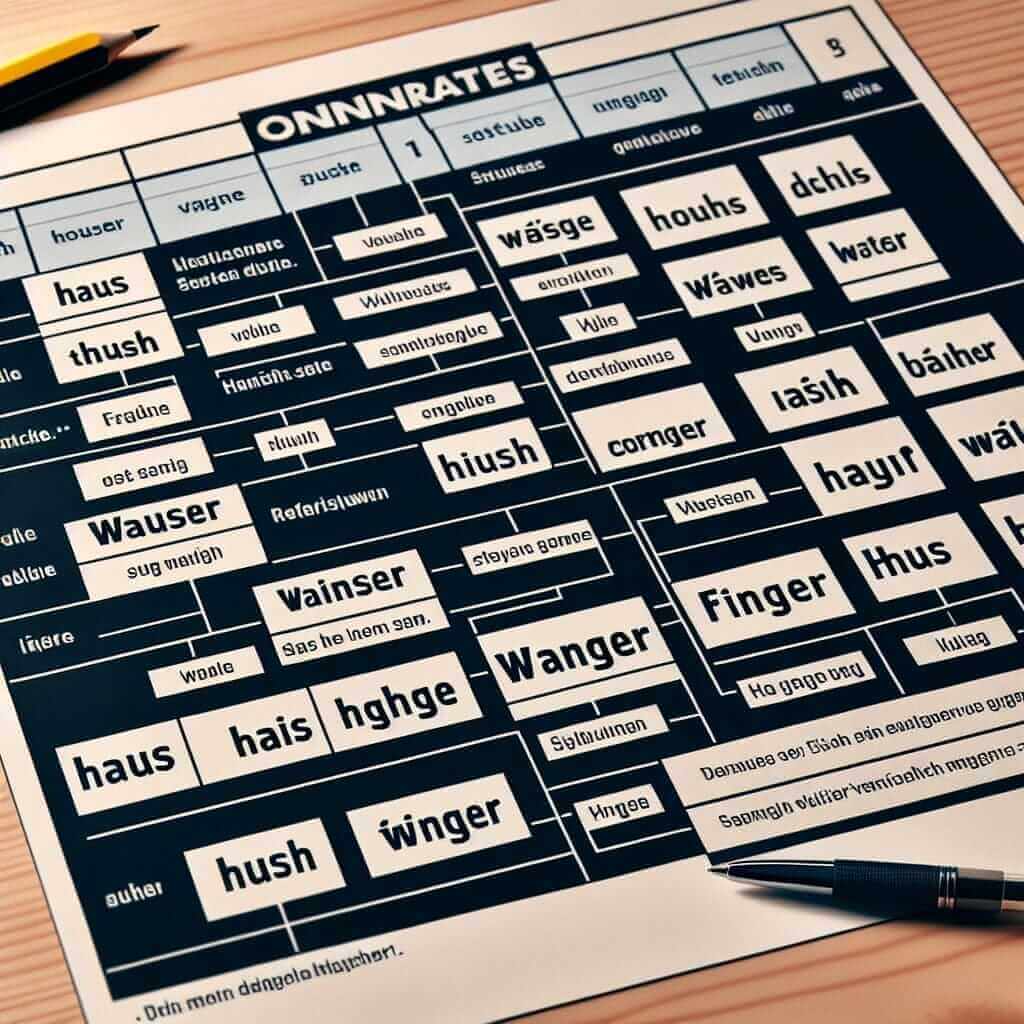As an IELTS instructor with over two decades of experience, I’ve encountered a fascinating pattern: students with a background in German often excel in the IELTS exam, particularly in the Speaking and Writing sections. While English and German might seem worlds apart at first glance, their shared linguistic roots and structural similarities can become valuable assets for IELTS preparation.
Nội dung bài viết
The Unexpected Advantages of German for IELTS
Many are surprised to learn that English and German belong to the same language family: Indo-European. This shared heritage manifests in:
- Vocabulary: A significant portion of English vocabulary has Germanic roots, often with cognates (words sharing similar spelling and meaning) in both languages. For example, “house” and “Haus,” “water” and “Wasser,” or “finger” and “Finger.” Recognizing these cognates can aid in understanding unfamiliar English words and expanding your vocabulary, crucial for achieving a higher Lexical Resource score in IELTS.
- Sentence Structure: Both languages often follow a similar subject-verb-object sentence structure, making it easier for German speakers to grasp complex English sentences and formulate their own with clarity. This directly contributes to fluency and grammatical accuracy in both Speaking and Writing.
- Logical Thinking: German, like English, emphasizes clear and logical expression of ideas. This shared emphasis on structure and precision can help learners develop a more coherent and persuasive argumentation style, essential for the Writing Task 2 essay.

How to Leverage Your German Skills for IELTS Success
While the inherent advantages of knowing German are beneficial, actively incorporating them into your IELTS preparation can significantly boost your performance:
- Cognate Recognition: Actively identify and learn English words with German cognates. Expand on these connections by exploring word families and synonyms.
- Comparative Grammar: Analyze the similarities and differences in grammatical structures between English and German. This will strengthen your understanding of English grammar rules and avoid common errors.
- Reading German Texts: Regularly reading German articles, stories, or even news can indirectly enhance your English vocabulary and comprehension through exposure to similar sentence structures and vocabulary.
Examples from IELTS
Imagine encountering the word “verschwenden” (to waste) in a German text. Recognizing its similarity to the English word “waste” can aid in understanding and utilizing the word effectively in the IELTS Speaking test when discussing environmental issues, for instance.
Similarly, understanding the concept of subordinate clauses in German, which is similar to English, can be a significant advantage when constructing complex sentences in the Writing section.
Final Tips
- Don’t be afraid to draw on your German knowledge: Use it as a springboard to enhance your English vocabulary and grammar.
- Practice consistently: Regularly engage with both languages to solidify your understanding and application of shared linguistic elements.
- Focus on fluency and clarity: Utilize the structural similarities between German and English to express your ideas confidently and precisely.
Remember, every language you learn contributes to your overall linguistic intelligence. Embrace your German background, use it strategically, and approach your IELTS preparation with confidence and a positive attitude. Good luck!